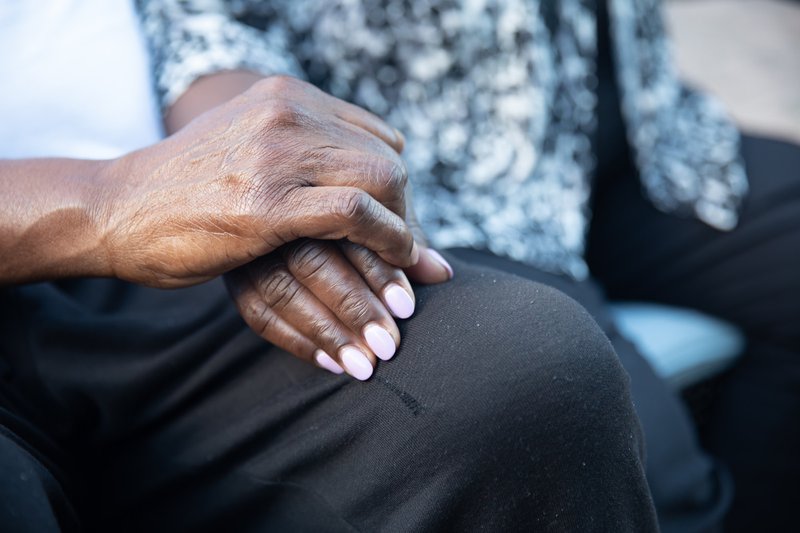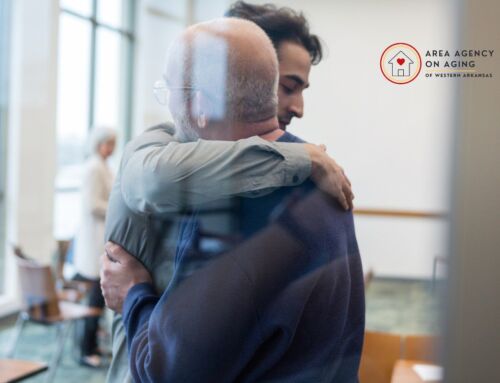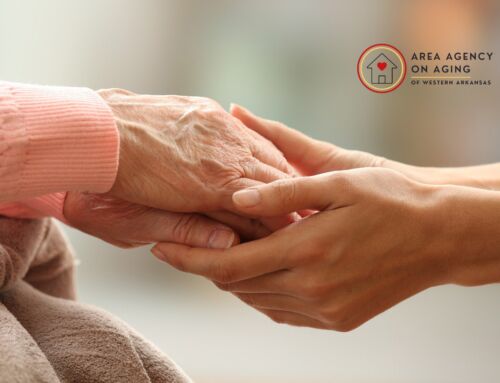As life expectancy continues to rise, the demand for caregiving services is becoming increasingly relevant. Within this landscape, family caregiving assumes a pivotal role in offering essential care and unwavering support to their aging loved ones.
But as we care for our elderly, we may find ourselves faced with not only practical tasks but also a whirlwind of emotions.
Join us as we explore how acknowledging these feelings can ease the journey of caregiving. Diving into the heart of these emotions, we highlight why it's important to recognize and handle them accordingly.

The Initial Emotional Onslaught and Tips for Adapting to a New Role
Embarking on the journey of caregiving for our elderly loved ones brings with it a whirlwind of emotions. In the early stages, caregivers often find themselves swamped by feelings ranging from shock and denial to overwhelming uncertainty. This phase elicits a mix of emotions that may catch caregivers off guard as they adjust to their new roles.
As you begin your family caregiving journey, consider the following guiding principles.
Empower Yourself Through Education
Knowledge is a powerful tool for reducing anxiety and building confidence. Learning about your loved one's condition and needs, as well as the available resources, such as AAAWA’s Caregiver programs, can help you make informed decisions and provide better care.
Forge Connections Through Support
Connecting with others who have gone through similar experiences can provide you with valuable insights and emotional support. Caregiver support groups, friends, and family members can offer understanding and encouragement during challenging times.
Nurture Your Well-Being
The mental well-being of caregivers is essential. Prioritize activities that recharge and rejuvenate you; this will ensure that you have the physical and emotional energy to care for your loved one.
The Spectrum of Emotions in Caregiving
The tender love for our elderly manifested in the realm of caregiving often means caregivers find themselves grappling with feelings of guilt, resentment, and exhaustion. The beliefs that perfect care could stave off a loved one's decline or that personal needs must be sidelined can lead to emotional challenges.
These unmet expectations can lead to a variety of psychological and emotional challenges in caregiving. With this in mind, here are a few practical strategies on how to navigate your emotions with grace and resilience:
- Practicing Self-Compassion: Treating yourself with the same understanding you offer your loved ones is paramount for your mental health. Embracing your feelings without self-criticism can gently ease the heaviness of guilt and resentment.
- Cultivating Self-Care: Recognizing that self-care is essential, not selfish, forms the cornerstone of a caregiver's well-being. Engaging in activities that rejuvenate your spirit guards against burnout and ensures your emotional reserves remain replenished.
- Creating Boundaries: Establishing clear boundaries between caregiving and personal time is also crucial. Learning to say no and setting limits can prevent burnout and protect your own mental health.
- Empowering Through Professional Support: Consulting with a therapist or counselor equips you with invaluable tools to navigate the intricate emotions and unique challenges of caregiving. Caregiver support groups and professional guidance can build a steadfast support system that can aid in your well-being.
The Role of Anticipatory Grief
Grief is a common experience for caregivers, and it can be experienced even before a loved one's passing. This so-called anticipatory grief involves mourning the decline of a loved one's health. It encompasses a range of emotions, from sadness and anxiety to guilt and even relief.
As you navigate the emotional challenges of caregiving, here are some ways that can help you prepare for and handle anticipatory grief.
Maintain Open Communication
Engaging in open conversations with your loved one about their wishes and feelings can help both of you prepare for what's ahead. These conversations can provide clarity and reduce uncertainty.
Create Lasting Memories
Focus on creating meaningful moments with your loved one. Capturing memories, sharing stories, and cherishing time together can offer some solace.
Embrace the Roller Coaster of Emotions
Anticipatory grief is not linear; emotions can be unpredictable. Recognize that it's okay to experience conflicting feelings and permit yourself to grieve in your own way.
The Importance of Respite Care for Caregivers
As caregivers, we know that your love and dedication know no bounds. But even the most resilient hearts need a moment of rest.
That's where our Respite Care Program comes in. Area Agency on Aging Western Arkansas (AAAWA) offers a program with respite care benefits, a valuable service that provides temporary relief and support to hardworking caregivers.
Imagine a time for yourself where you could take a step back, breathe, and do the things that you love, knowing that your loved one is in the hands of compassionate professionals who share your commitment. Our Respite Care Program offers you:
- Expert Care: Our skilled caregivers are here to ensure your loved one receives the highest level of care and attention.
- Reduced Stress: Step away from the daily demands of caregiving and enjoy the tranquility that comes with knowing your loved one is safe, secure, and cared for.
- Expert Resources: Our Respite Care Program isn't just about a break; it's about offering you guidance, resources, and a supportive community of caregivers who understand your journey.
Your dedication deserves recognition, but it also deserves a moment of rest. Let our Respite Care Program be your partner in this rewarding journey, giving you the strength and resilience you need to continue providing exceptional care.
Finding Emotional Support
Caregiving itself is a journey filled with ups and downs, and you don't have to go through it alone. If you find yourself needing a safe space and an open platform for sharing, listening, and learning, joining an emotional support group might be for you.
By joining a caregiver support group like AAAWA, you can connect with fellow caregivers who are navigating similar paths. Gain insights and strategies from others who have walked in your shoes and discover new perspectives. Experience the relief of being truly understood as you share your feelings, concerns, and triumphs in a judgment-free environment.
Celebrating Small Wins
Amid the challenges of caregiving, it's easy to overlook your daily victories. These seemingly small accomplishments have the power to uplift your spirits, boost your resilience, and enhance your well-being.
Take a moment to recognize your achievements and remind yourself of your ability to overcome obstacles. Celebrating small wins isn't a luxury; it's essential to sustaining your well-being and continuing to provide the best care for your elderly loved ones.
Every step, no matter how small, deserves recognition. So, take a moment today to celebrate yourself. You deserve a round of applause.
Practical Tips for Emotional Self-Care as a Caregiver
While caregivers often focus on others, nurturing your emotional well-being is equally vital. Setting boundaries and prioritizing personal time are fundamental components of emotional self-care. Dedicate time each day to activities that rejuvenate you, whether it's reading, pursuing a hobby, or enjoying a cup of tea.
Remember that even these seemingly small instances have a significant impact on your emotional equilibrium. By maintaining boundaries, you recharge your emotional batteries and enhance your capacity to provide compassionate care. Always remember that cultivating a positive mindset begins by showing kindness to yourself.
Caregiving: A Journey of Giving, Receiving, and Connecting
In caregiving, giving is paramount, but receiving support, understanding, and care is equally essential. As you navigate the twists and turns of this emotional ride, remember that you're never alone. Your feelings are valid, your efforts remarkable, and your journey a testament to the enduring power of love, empathy, and human connection.
If you are ever in need of help, you can contact us and explore the transformative benefits of our Respite Care Program, which has been designed to make a difference to you and your loved ones' lives. Meanwhile, you can also listen to the Graymatters AAAWA Podcast. This heartfelt platform offers real stories from caregivers who've trod the same path as yourself.
Together, we can create a compassionate community that uplifts both caregivers and care recipients.



